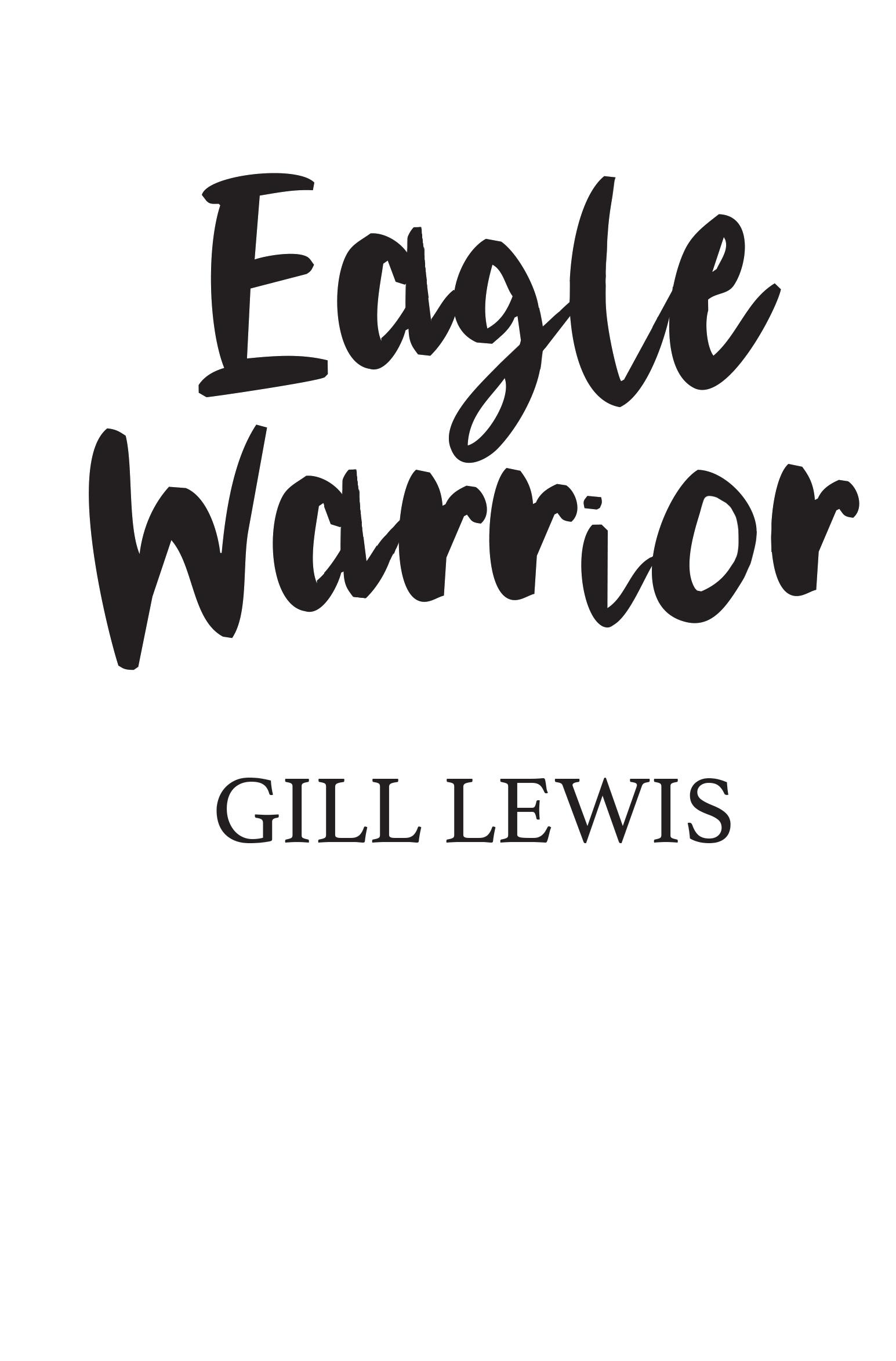Chapter 1
Everything changed the day Haggis died.
Bobbie had never got on with Haggis. He was Granny’s dog. He was old, like Granny. He was small and fierce too, like Granny. He’d bite your ankles if he had half a chance.
But Bobbie hadn’t wanted him to die.
Poor Haggis.
It was no way for any animal to die.
*

1
That morning, Bobbie had walked down the garden path to the shed where Granny lived and knocked on the door.
“Come in,” shouted Granny.
Bobbie walked in and sat on the end of Granny’s bed. Haggis watched Bobbie and growled rude dog words at her from his basket beside the wood‑burner.
Granny lived in the garden shed. It was more like a summerhouse. It had big windows that looked out across the fields to the moorland and mountains. There was a bed, an armchair and a table, and that was it. Dad had put a wood‑burning stove inside to keep her warm through the winters. Outside, she had a small campfire with a ring of stones around it and two old deckchairs to sit in. There were candles in jam jars hanging like fairy lights along the branches of a tree.

2
She said she wouldn’t live anywhere else.
She was Granny Mountain.
She even looked like a mountain. Her face was full of wrinkles, like a craggy rock. She had wisps of snow‑white hair on top of her head. She stomped in her big boots across the Scottish hills as if she was a mini mountain troll.
“Are you coming up on the hill today, Granny?” said Bobbie.
Granny scowled and pulled on her blue woollen coat. It was the one she wore if she went to town. “Your mum says I’ve got to have my flu jab today. I missed it last year and there’s flu going round.”
“In summer?” said Bobbie.

3
“So it seems,” said Granny. “Your mum says I have to go.”
“I’ll look out for our eagle for you,” said Bobbie. “I’m going up the hill to see if he’s still there.” Granny stood by the window and looked out at the dark‑green block of forest at the edge of the farm. “I reckon he’s having a lie‑in,” she said. “I haven’t seen him flying about yet this morning.”
Bobbie got up to go. “I’ll say hello to him for you.”
“You’ll need these,” Granny told Bobbie. She looped the strap of the binoculars over Bobbie’s neck. “You can take Haggis with you too.”
Bobbie and Haggis looked hard at each other.

4
Haggis growled softly.
“I don’t think Haggis wants to come with me,” said Bobbie. She didn’t want Granny to know that she didn’t want to take him.
“He doesn’t like being left on his own,” Granny said as she pushed them both out of the door. “Now shoo, both of you.”
Haggis grumbled, but he trotted after Bobbie on his stiff little legs as she went through the farmyard and out across the hill. The sheep and lambs moved away from them as they made their way up the track that led to open moorland. Only Mavis, Bobbie’s hand‑fed lamb, bleated sadly after her.
The sky was bright blue but a cool breeze was blowing and so Bobbie zipped up her coat. It was her favourite coat. It had been a present from Granny nearly a year ago for her

5
tenth birthday. Bobbie loved it. It had lots of pockets. It had pockets inside pockets. It even had pockets inside pockets inside pockets. She could hide a whole packet of biscuits without Mum seeing. It was the best sort of coat.
Bobbie crossed over the footbridge and waited for Haggis to catch up with her. She looked back to the small farmhouse and the fields dotted with sheep. Her own small flock was mixed in with Dad’s sheep, but she knew all hers by name. The farm was home. It sat in a valley in the middle of land owned by Charles Hunt, the 10th Duke of Glen‑Gallows. The Duke owned the moorland and mountains as far as the eye could see.
Bobbie climbed up to the top of the small hill and sat down between the rocks, out of the cold wind. She could see Haggis below, sniffing through the heather for rabbits. She munched on a biscuit and held the binoculars to her eyes.

6
She and Granny had been watching a golden eagle for the last three days. They had seen it flying high up in the sky. It soared with its wings spread wide. It was a huge bird. Each night it had come to roost in the trees at the forest edge. Bobbie scanned the trees until she found the eagle resting near the top of its favourite pine tree. It was hard to believe that something so big and fierce could be here on their farm. Granny said it was probably a young one that was looking for a new place to live. In the early morning sunlight, its feathers shone in all the colours of brown from gold to dark chocolate. Its curved beak was the colour of steel and its bright yellow feet curled around the branch. It was awake and watching something up in the sky.
Loud croaks above made Bobbie look up. Two ravens sailed above her. Their feathers shone black and gun‑metal blue. They had seen the eagle too, and she watched them spin

7
downwards and dive‑bomb it. The eagle spread his huge wings and flew upwards, flapping hard in the still air between the trees. He caught the wind above the treetops and vanished away across the moor. The two ravens mobbed him as he went. She hoped the ravens hadn’t chased the eagle away for good. She’d have to ask Granny about them.
Bobbie finished her biscuit and looked around for Haggis.
“Haggis,” she called.
But she couldn’t see Haggis anywhere.
Sometimes he pretended not to hear.
Bobbie climbed down from the rocks and set off to look for him.

8
She could see him on the other side of a stream, eating something on the ground.
“Ugh, Haggis, drop it,” said Bobbie.
Haggis kept munching at a very dead, very smelly rabbit.
“Haggis, that’s gross,” shouted Bobbie as she marched towards him. “Leave it.”
Haggis took a few steps back.
He didn’t look quite right.
His legs tottered and he stumbled.
He vomited.
He gave a little whimper.
Then he dropped down.
Dead.

9










